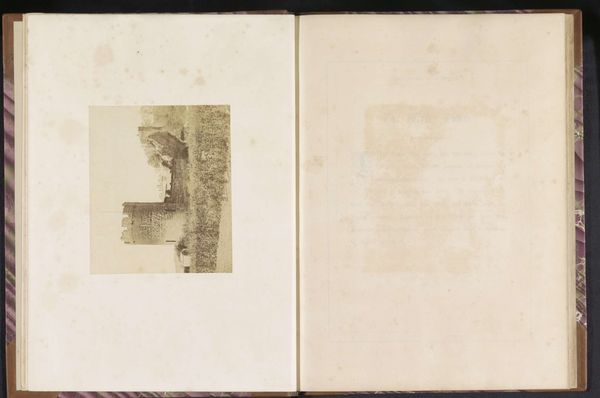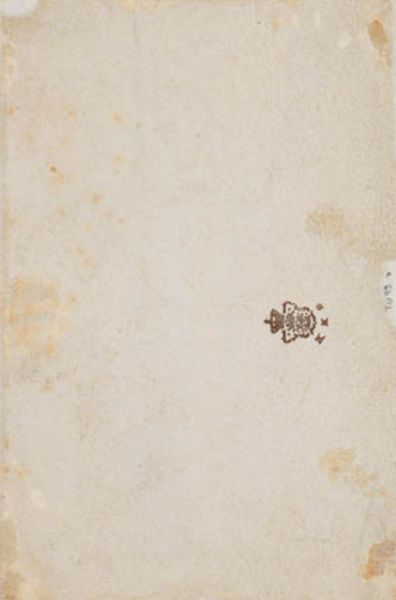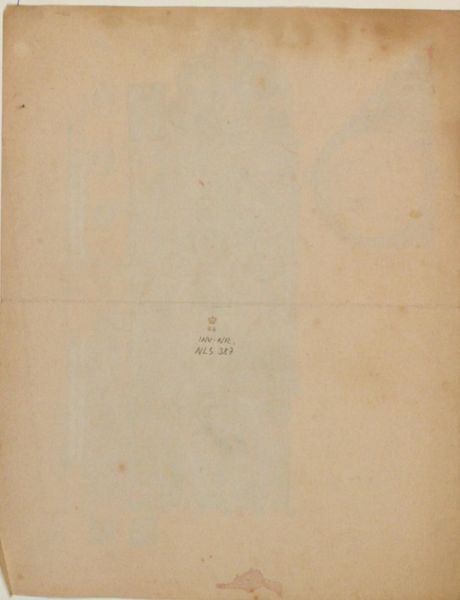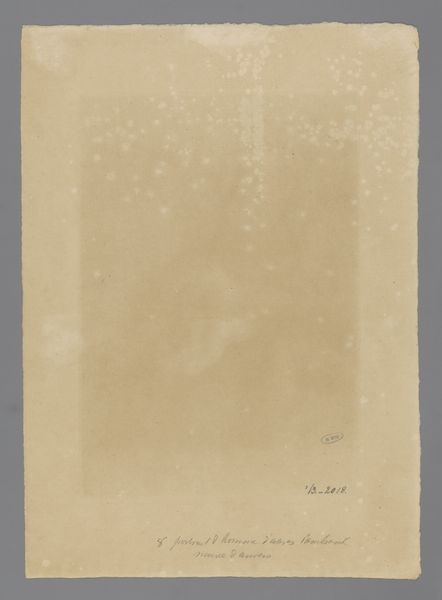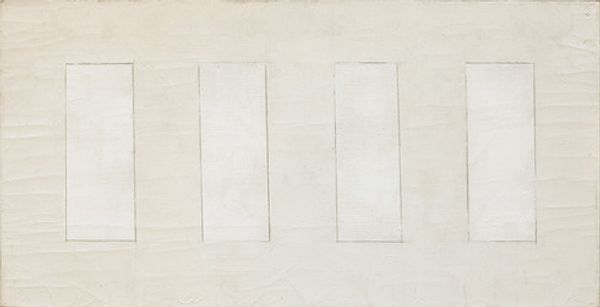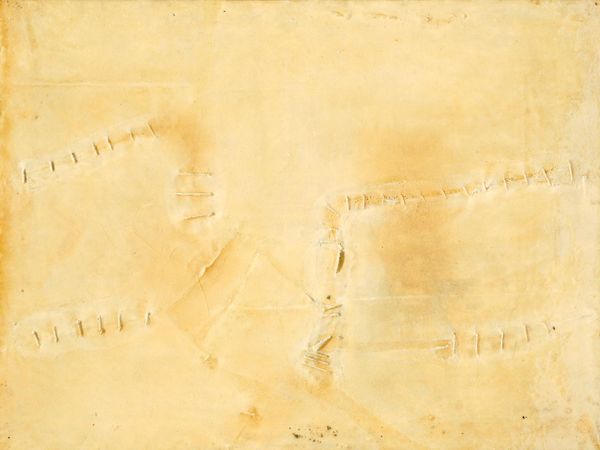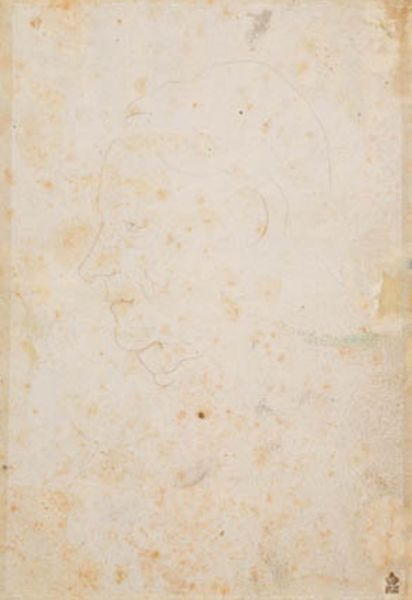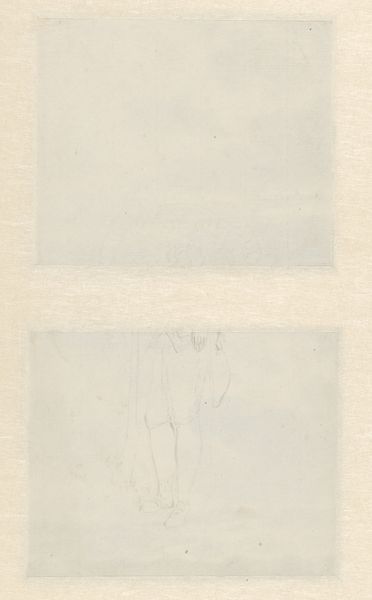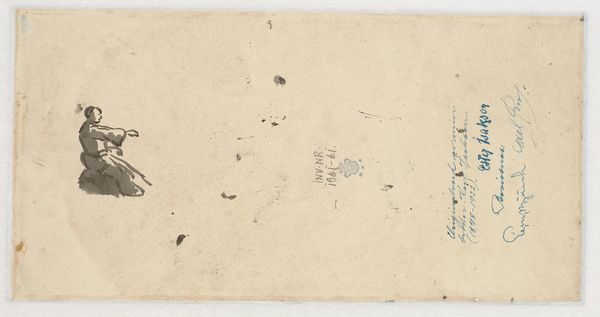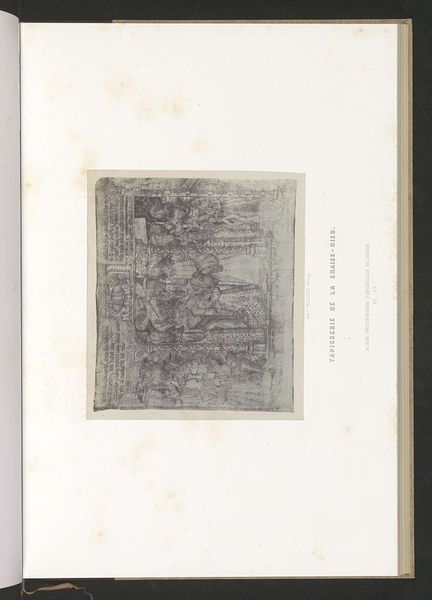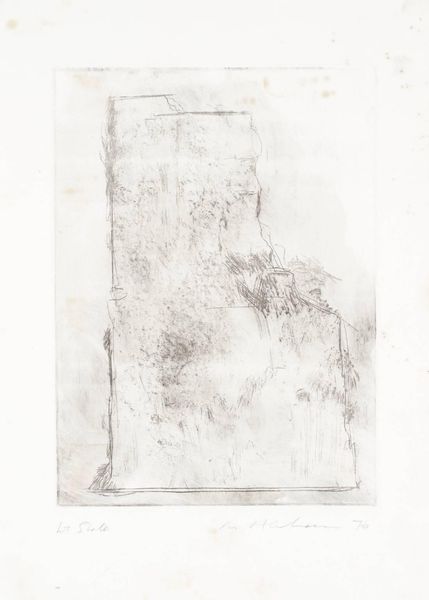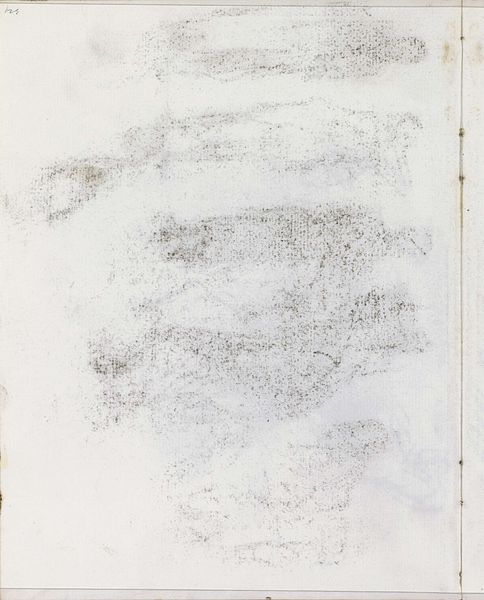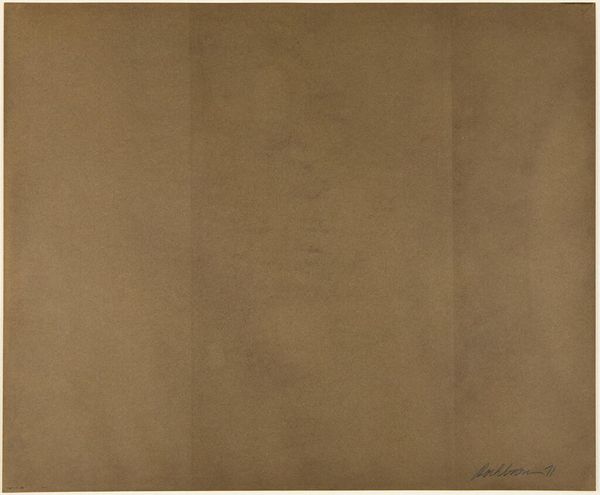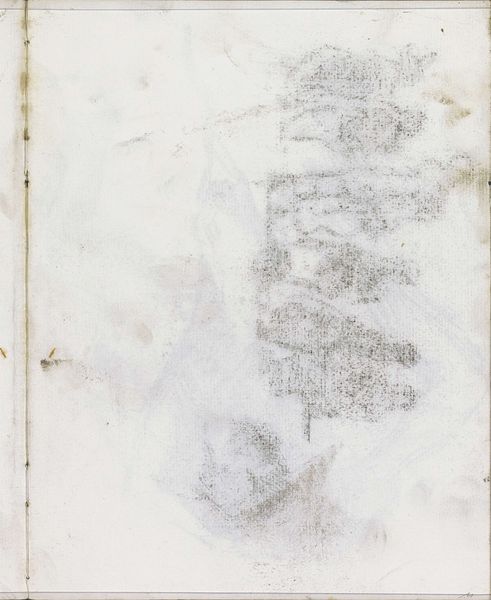
drawing, paper, ink
#
drawing
#
hand written
#
conceptual-art
#
hand-lettering
#
postmodernism
#
hand drawn type
#
hand lettering
#
paper
#
text
#
personal sketchbook
#
ink
#
hand-drawn typeface
#
fading type
#
sketchbook drawing
#
sketchbook art
#
small lettering
Copyright: Alighiero Boetti,Fair Use
Editor: This is Alighiero Boetti’s “Da Alighiero Nati a Guido Boetti,” from 1986, an ink drawing on paper. It's… delicate, almost ghostly. The faint images and text feel ephemeral. How do you interpret this work, considering its socio-political context? Curator: Well, consider Boetti's engagement with systems, order, and chance. The repetitive element – what appears to be labels or wrappers– speaks to mass production and consumer culture, issues prevalent in the 80s and still acutely relevant today, no? These were also decades marked by stark ideological divides. Where does Boetti fit into this landscape, do you think? Editor: It makes me wonder about consumerism’s impact. The labels suggest branded commodities, things readily available, but the faded quality implies a critique, or at least a questioning, of their lasting value? Curator: Precisely! And how does this repetition play into ideas about authorship? Boetti often outsourced labor, embracing collaboration and questioning the role of the individual artist. Could this drawing, with its meticulous, almost manufactured aesthetic, be seen as a commentary on artistic production itself? Is it almost poking fun at it? Editor: That’s interesting. I hadn't considered that! I was stuck on just the commercial aspect, I didn't link that up to the role of the artist too. The faded nature…does it critique consumer culture but also the “author function” then, if it undermines the unique artistic gesture. It's a poignant way of capturing late-capitalist anxiety. Curator: I’m so glad to hear it! Reflecting on his own identity in relationship to wider world events and cultures is essential. The work invites us to contemplate not just consumption, but also labor, authorship, and value, within a complex, globalized world. A world that feels a bit faded. Editor: I can see now how Boetti pushes us to reconsider our relationship to commerce, artistry, and even each other. I’m walking away from this with so much to ponder about these connections. Thanks.
Comments
No comments
Be the first to comment and join the conversation on the ultimate creative platform.
